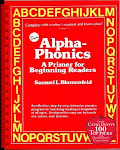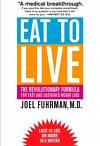The Christian Philosophy of Food by Peter Bringe brings the light of Scripture into the confused and sometimes dangerous world of diet and nutrition. It is a door-opener for Christians to see what God has said about food. This courageous work is full of solid biblical principles for a life of health and blessing.
Peter begins with a call to humility and fear of God: “Be not wise in your own eyes; fear the LORD, and turn away from evil. It will be healing to your flesh and refreshment to your bones” (Prov. 3:7-8) and,“The fear of the Lord is the beginning of knowledge; fools despise wisdom and instruction.” (Prov. 1:7)
He launches into Genesis 1:29: “God said, ‘Behold, I have given you every plant yielding seed that is on the face of all the earth, and every tree with seed in its fruit. You shall have them for food.’” From this verse the author sees plant foods as central in diet and nutrition. This is a bold statement; the American pulpit has been long silent because of the volatile controversy of Vegetarianism. Peter responds with these words: “The Bible teaches that plant foods are more central and important...Only plant foods are given as food in the beginning, for animals as well as man. Even after the fall mankind was restricted to only eating plant foods until after the flood. It would follow that plant foods are the foundational food for mankind.”
Peter offers a Christian food pyramid that follows the progressive revelation of scripture. Prioritizing plant foods at the foundation base of the triangle (Gen. 1:29), clean meats following (Lev. 11), and unclean meats last (Mark 7:15-19, Acts 10:12-16).
“A predominately plant food diet is a defense against the argument that we cannot produce enough food for a growing population and so should not obey God’s command to ‘Be fruitful and multiply and fill the earth.’” (Gen. 1:28) An acre of land used for cattle can supply 77 days of one adult’s protein needs. In contrast, if used for soybeans, it could supply 2,224 days of sustenance for an adult. “By eating more plant foods we are taking better and more efficient dominion of the earth.”
For some years a friend, Dr. Paul Shakespeare, came over every Monday and taught us about health, and the damages and dangers of unhealthy eating. As a missionary doctor in war-torn Biafra, in the 70‘s, starving refugees came, fleeing the devastation. Among these were pregnant mothers. Only those who were able to grow and eat black-eye beans, their babies lived (the beans contained enough protein and folate for the little ones to survive.)
 Worried about protein deficiencies with a plant-based diet? “Broccoli contains more protein per calorie than steak.” Look at the apes and gorillas if you think you must have meat to build muscle.
Worried about protein deficiencies with a plant-based diet? “Broccoli contains more protein per calorie than steak.” Look at the apes and gorillas if you think you must have meat to build muscle.
Next Peter addresses meat: “Even though plant food is more basic to our diet,” he writes, “God has also given us meat to eat.”
The Bible’s view of clean and unclean meats has been vindicated by Dr. David Macht in 1953. At John Hopkins University he studied the toxic effects of animal flesh. He found that clean animals were found to be nontoxic and all unclean meats were classified as toxic.
A byproduct our de-relationalized culture, Peter points out, is “pop-food,” which sacrifices health, lacks personal character, and appeals to the lowest common denominator of taste-buds.
Always keeping food and health in balance, Peter writes, “There is a time to eat conservatively, paying close attention to health, but there are also times to feast and make merry.” We are to be neither sensually self-centered or health obsessed, but to eat to the glory of God. “Food, hospitality, and relationships are strongly connected,” Peter writes. Food is meant to be enjoyed in community. “Simple and ancient things like eating and conversing together as a family are foundational to a Christian culture and society.”
“For the kingdom of God is not a matter of eating and drinking but of righteousness and peace and joy in the Holy Spirit.” (Rom. 14:17)
In this book we find the wisdom and knowledge necessary for meaningful change, encouragement for eating more plant foods and a balanced biblical approach to diet and health. The book has fresh strength from God’s law as it advances Christian culture. We come to realize that all of life is holy. Behind this book is the covenant keeping God “Who forgives all your iniquities, Who heals all your diseases, Who redeems your life from destruction, Who crowns you with lovingkindness and tender mercies, Who satisfies your mouth with good things, So that your youth is renewed like the eagle's.”
You may wish to purchase Peter Bringe’s book at
We highly recommend his blog:












































































